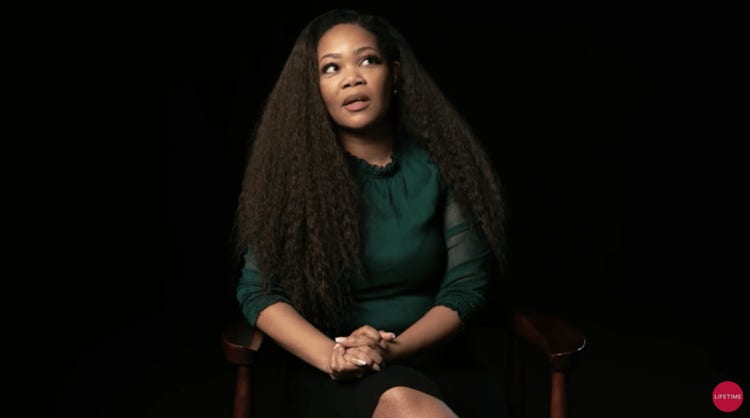
The views expressed in this article are those of the author and do not necessarily reflect the official policy or position of any other agency, organization, employer or company.
Since I was young, R. Kelly’s talent was known in the black community as equally as his reputation for mayhem. From songs like “Bump and Grind” and “Your Body’s Calling” all the way to “Ignition,” there was an R. Kelly hit floating around in every car ride, cook out and family gathering. Just like his music, the rumors of his disturbing relationship with underage girls were also inescapable. In 1994, Kelly and his associates falsified paperwork so that the singer, then 27, could marry a 15-year-old Aaliyah. Though this story was widely reported and fact-checked by outlets Chicago Sun-Times, VIBE and MTV, the marriage was widely reduced to urban folklore and Kelly’s career continued to thrive. Later incidents, like the infamous sex tape showing Kelly having sex with and urinating on a young girl believed to be around 13 years old, circulated in barbershops and on street corners. Most millennials were barely old enough to comprehend the gravity of what Kelly was up to, much less able to actually do something about it.
If you watched “Surviving R. Kelly Part II: The Reckoning,” you’ll know that R. Kelly’s transgressions far exceed the two above mentioned incidents, though those two alone would certainly justify his current status behind bars. The three-part special, a continuation of the first installment created by award-winning filmmaker dream hampton, dealt with the aftermath of his exposure. Through the docu-series; dozens of victims, employees, family members and known associates of Kelly corroborate long-standing accusations of him beating, starving, having sex with and illegally filming underage girls. Tears flowed as his former hair braider, Lanita Carter, describes a gruesome incident in which she was forced to give the singer fellatio. Carey Kelly, R. Kelly’s younger brother, describes being bribed by his superstar sibling to take the fall for the sex tape. The knee-jerk reactions to this overflow of information about Kelly’s troubled past and the people whose lives he destroyed is usually related to how sick of an individual he was and is. How arrogant he was to carry on with these crimes in plain sight, even after being miraculously acquitted in his 2002 child pornography case.
What’s blatantly missing from the water cooler chatter is how complicit those were around him. In the series, we saw how R. Kelly moved with impunity for decades thanks to his insular circle of managers, bodyguards, assistants, and hangers on; who were more interested in riding the gravy train than acting with integrity. Much like the rest of the world, they dismissed Kelly’s victims as just fast little girls who wanted money and to be around a superstar — whose mothers should have been looking after their children. Not only did R. Kelly’s inner circle turn a blind eye to the abuse, they helped make it possible.
Jimmy Maynes, a Jive Records executive interviewed for “Surviving R. Kelly — Part II” remembers the label panicking to make the sex tape scandal go away to keep their own jobs. He was sent on a mission to travel to Chicago and buy as many copies off the street as he could. At the behest of his higher ups, Maynes was told to move with haste because “Rob keeps the lights on around here.”
Dylan Eli, R. Kelly’s former engineer, distinctly remembers recording sessions at the singer’s studio and home, where two women were living in the singer’s garage. At the time, the sex tape had just come out, and Eli was privy to the fact that one of the women in the infamous tape was indeed living there. The details are so fresh that Eli remembers having to buy her a 21st birthday cake.
Perhaps the most devastating proof of R. Kelly’s complicit team was when Lanita Carter called police reporting she had been assaulted by him after a hair appointment. She was later blindsided by the fact that his entire staff suddenly pretended not to know who she was. They had even thrown away a bag of her hair supplies to ditch evidence of her ever being there.
These close confidants join the ranks of others — like Kelly’s former manager Demetrius Smith and former personal assistant Lindsey Perryman-Dunn — who refused to turn in their boss because they thought it was the right thing to do. This also includes Bruce Kelly, who previously defended his brother’s “preference” for younger women before finally admitting that he’d long known about multiple other peodophilic tapes recorded by the singer.
The truth is, the charges brought against Kelly couldn’t not have been accomplished by one man. It is the code of silence upheld by the people who valued their position in his life that made his damage possible. This cast of enabling characters either felt it “wasn’t their place” to get involved and at the worst, literally served as a sheppard belt to introduce him to more victims.
We can’t be naive in thinking R. Kelly is a one-of-a-kind fixture in entertainment. This same toxic mindset is held by many other celebrity entourages that would rather get fat off the land than to speak out against behaviors that harm innocent people. Every star that shines brightly on our TV screens is powered by a team that helps them maintain their trajectory in pop culture. It’s sad that R. Kelly cohorts couldn’t dig deep to do what was right. It’s even more sad that it took a two-part television event to deliver justice his victims should have received years ago. Let’s just hope that folks working with artists behind the scenes can use this as a cautionary tale to do the right thing when it matters, and protect the innocent against predators — even if they’re signing your checks.